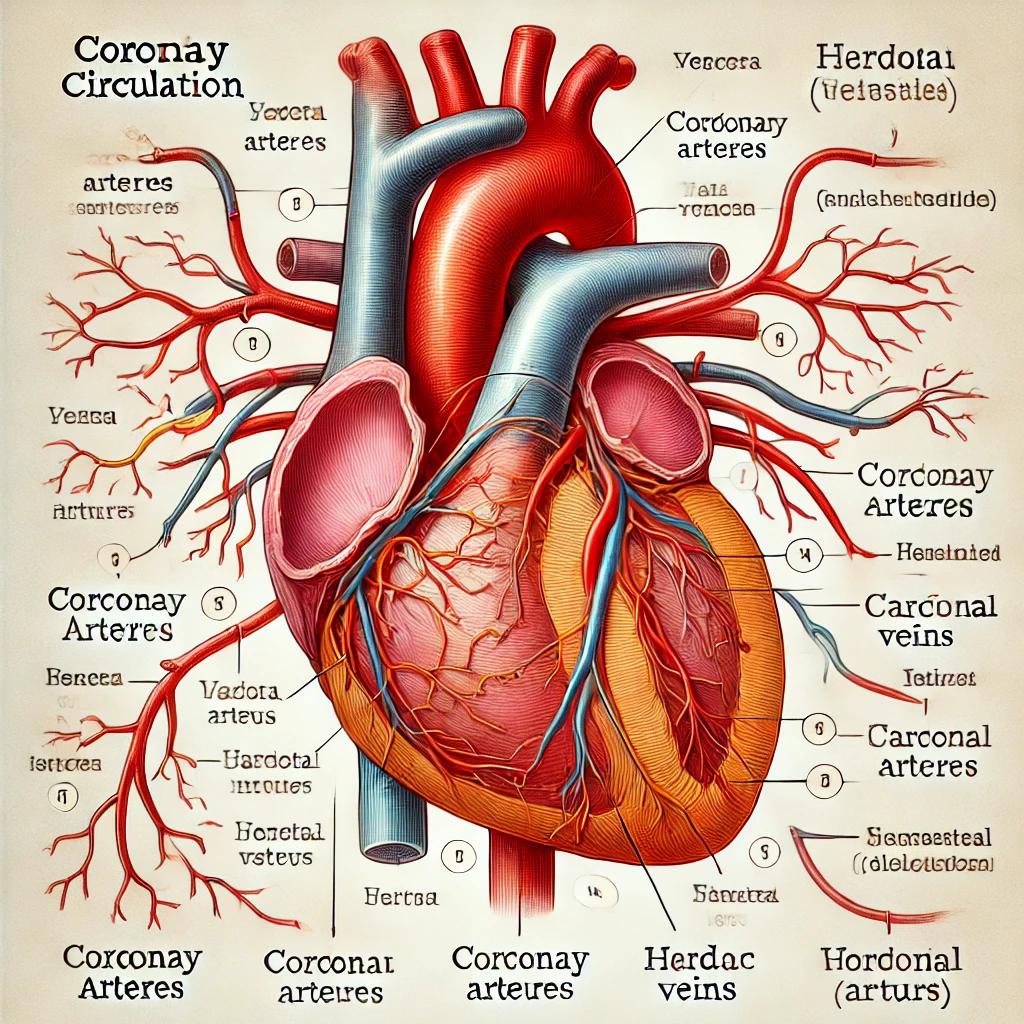Munchausen Syndrome
Munchausen Syndrome, or Factitious Disorder Imposed on Self, is a severe psychological disorder where a person fakes illness, injury, or psychological trauma to draw attention or sympathy. It’s an act of extreme deception: individuals suffering from Munchausen syndrome are willing to undergo painful or risky tests and operations to seek sympathy.
Types
- Physical Munchausen Syndrome: People with this variant of factitious disorder often present with physical symptoms that medical evaluation can’t explain. They may claim to have chest pain, stomach issues, or fever, which leads to unnecessary and potentially harmful tests and procedures. It’s challenging for healthcare professionals to diagnose as the individual is skilled at faking or inducing symptoms.
- Munchausen Syndrome with Predominantly Psychological Signs and Symptoms: Individuals with this type of disorder invent or exaggerate psychiatric symptoms. They might pretend to have severe depression, anxiety, or symptoms of Post-Traumatic Stress Disorder (PTSD). These individuals often understand psychology and mental health disorders, which they use to deceive healthcare professionals.
- Munchausen Syndrome with Mixed Psychological and Physical Signs and Symptoms: This type of Munchausen Syndrome is particularly challenging to diagnose as individuals exhibit physical and mental health symptoms. The broad spectrum of symptoms often leads to misdiagnosis and inappropriate treatment, causing significant harm to the patient’s health.
- Chronic Munchausen Syndrome: Chronic Munchausen Syndrome lasts for years, often leading to numerous hospitalizations and extensive unnecessary medical procedures. These individuals often have a history of moving between healthcare providers and hospitals to avoid detection.
- Co-morbid Munchausen Syndrome and Malingering: This rare type of Munchausen Syndrome involves individuals who fake illness and pretend symptoms for material gains, such as gaining access to drugs or obtaining financial benefits. It often requires a comprehensive psychiatric evaluation to diagnose.
- Munchausen Syndrome by Proxy (Factitious Disorder Imposed on Another): In this disturbing variant, the person induces or fabricates illness in someone else, usually a child or someone under their care, to gain attention or sympathy. They may exaggerate, fabricate, or induce symptoms, potentially harming the victim.
- E-Munchausen or Munchausen by Internet: This emerging form of Munchausen Syndrome involves people pretending to be ill in online health communities or on social media to gain attention or sympathy. They may fabricate stories about serious illnesses or treatments, causing distress and harm to supportive online communities.
- Munchausen Syndrome in Substance Abuse: Individuals may exaggerate or fake substance abuse or withdrawal symptoms to gain access to specific substances or medications. It can result in an unnecessary and dangerous supply of drugs.
- Munchausen Syndrome in Legal Contexts: Individuals may pretend to have physical or psychological conditions to avoid legal responsibilities or punishments. They may fake mental illness to avoid prison time or to gain leniency in court proceedings.
- Munchausen Syndrome with Predominantly Factitious Signs and Symptoms: This type of Munchausen Syndrome involves individuals tampering with medical devices or samples to produce abnormal test results. They may add blood to urine samples, tamper with wound dressings, or inflict harm on themselves to produce symptoms.
Please note that all of these forms of Munchausen Syndrome involve a high level of deception and potential harm to the individual or others. They all require professional psychiatric intervention. Individuals with Munchausen Syndrome can live healthier lives with proper treatment, including therapy and potentially medication.

Diagnosis and Treatment
Diagnosis of Munchausen Syndrome
Diagnosing Munchausen syndrome can be a significant challenge for many healthcare professionals. This difficulty stems from the fact that patients with this disorder are often experts at simulating or even causing symptoms that mimic natural medical conditions. They frequently have a broad understanding of medical terminologies and disease processes, making their presentation remarkably similar to the actual conditions they claim to have.
Initially, diagnosing Munchausen syndrome typically begins with the healthcare provider ruling out other possible medical and psychiatric conditions. This step usually involves a thorough physical examination and an in-depth assessment of the patient’s medical and psychiatric history.
Various red flags may raise suspicions of Munchausen syndrome. These can include vague and inconsistent medical history, symptoms that worsen or change in response to diagnostic testing, and conditions that seem to improve only under observation but worsen when the patient is not observed.
Healthcare providers may also become suspicious if a patient frequently switches healthcare providers, often termed “doctor shopping,”, especially following adverse events or negative investigations. Patients with this disorder might also have a history of seeking treatment at numerous hospitals, clinics, or emergency rooms.
Even after other conditions are ruled out, diagnosing Munchausen syndrome can be difficult because it requires the healthcare provider to identify intentional deception on the part of the patient. This task is delicate and usually requires the skills of a psychiatrist or psychologist experienced in dealing with artificial disorders.
The Diagnostic and Statistical Manual of Mental Disorders (DSM-5), used by mental health professionals to diagnose mental illnesses, specifies that a diagnosis of Munchausen syndrome requires the patient to:
- Falsify physical or psychological signs or symptoms or induce injury or disease associated with identified deception.
- Present themselves to others as ill, impaired, or injured.
- Continue with the deception, even without receiving apparent rewards.
- Another mental disorder, such as a delusional disorder or another psychotic disorder, does not better explain behavior.
Treatment of Munchausen Syndrome
Treating Munchausen syndrome is equally, if not more, challenging than diagnosing it. Being sensitive when approaching patients after a diagnosis is essential to encourage them to seek healthcare services.
As Munchausen syndrome is a psychiatric illness, treatment often involves psychotherapy (talk therapy) as the first-line approach. Psychotherapy aims to manage the underlying psychological issues that fuel the patient’s compulsive lying and deception. Cognitive-behavioral therapy (CBT), aimed at identifying and changing harmful thought patterns, can be beneficial.
There’s no established medication to treat this directly. However, medications can be used to treat associated conditions such as depression, anxiety, or personality disorders if they are present.
A significant part of the treatment process often involves implementing long-term management strategies. These include minimizing the harm the patient can do to themselves, reducing their use of healthcare resources, and encouraging them to seek and maintain psychological treatment.
Establishing a contract or treatment agreement is one standard method to accomplish these goals. The patient, their psychiatrist, and a designated primary care provider will agree on a specific plan to manage future health concerns. This agreement might include stipulations that the patient will seek treatment from only one healthcare provider or facility and agree to use only certain medications or procedures.
In severe cases, when the patient’s actions pose an immediate risk to their health, more drastic measures such as involuntary commitment to a mental health facility may be necessary.
The most crucial point to remember in treating this disorder is that it is a chronic condition with a high likelihood of relapse. Therefore,
ongoing psychiatric care, routine follow-ups, and long-term maintenance are integral to the treatment plan.
Living with Someone with Munchausen Syndrome
Living with someone diagnosed with this disorder can be an emotionally exhausting and confusing experience. Munchausen Syndrome is a form of factitious disorder characterized by a person’s compulsive need to act as if they have a physical or mental illness when they are medically well. This chronic mental illness can create a challenging environment for family members and caregivers, who often feel a range of emotions, including frustration, anger, fear, and even guilt. The following sections offer a closer look at some of the issues involved and guide managing these challenges effectively.
Recognizing the Signs
Understanding the signs and symptoms of this disorder is essential for anyone living with an individual suspected of having this disorder. These include frequent hospitalizations, vague or inconsistent symptoms, eagerness for medical tests, procedures, or surgeries, and a reluctance to allow healthcare providers to meet with or talk to family members or friends.
Recognizing these signs can help you better understand the individual’s behaviors and seek professional help. It’s important to remember that it is a severe mental health condition that requires appropriate diagnosis and treatment by mental health professionals.
Emotional Challenges
Having a loved one with Munchausen Syndrome can stir up many complex emotions. You might feel bewildered by their seemingly inexplicable behavior. You may also feel frustrated, angry, or betrayed if you’ve been manipulated into believing your health is severely compromised. Moreover, a loved one’s repeated engagements with the healthcare system can cause fear and anxiety, especially when medical interventions become invasive or potentially harmful.
These emotions are natural responses to a challenging situation. Acknowledging these feelings rather than suppressing them and seeking support for your emotional well-being is crucial.
Navigating the Healthcare System
Loved ones often play a significant role in the healthcare journey of an individual with Munchausen Syndrome, which can bring challenges. It can be tough to witness someone you care about undergoing unnecessary medical procedures or to feel that they are not being truthful with their healthcare providers. You may also encounter challenging conversations with doctors or nurses who suspect Munchausen Syndrome.
Remember, it’s essential to maintain open and honest communication with healthcare providers. While respecting your loved one’s privacy, sharing your observations and concerns with medical professionals can be crucial to achieving a correct diagnosis and appropriate treatment plan.
Support and Self-Care
When caring for a loved one with Munchausen Syndrome, taking care of your physical and mental health is also essential. You might find joining a support group for people in similar situations helpful. Talking to others who are going through the same experiences can provide comfort, reduce feelings of isolation, and offer practical advice.
Don’t hesitate to seek professional help if you’re feeling overwhelmed. Therapists and counselors can provide strategies to help manage stress, address feelings of guilt or frustration, and help you establish healthy boundaries.
Setting Boundaries
Setting clear and consistent boundaries can be one of the most challenging yet necessary aspects of living with someone with Munchausen Syndrome. This may include limiting your time discussing medical issues or attending doctors’ appointments with them. These boundaries are not about punishing the individual but rather about protecting your mental health and encouraging them to take responsibility for their actions.
In conclusion, living with someone with Munchausen Syndrome is a journey that requires patience, understanding, and resilience. It’s vital to remember that support is available, both for your loved one and yourself. Mental health professionals can provide the tools and strategies needed to navigate this challenging situation and help guide the individual toward a path of recovery.
Prevention
Prevention may be challenging due to the complexity of the disorder. It is often deeply ingrained in a person’s psychological makeup, possibly linked to trauma or severe stress, making it hard to prevent without early intervention. However, specific strategies and awareness can be instrumental in preventing or at least reducing its severity. Here are some of these strategies:
Early Detection and Intervention
Early detection and intervention can significantly affect management, as with many mental health conditions. Health professionals trained to notice the signs of this disorder can help initiate treatment sooner. This may include therapy or counseling to address the underlying emotional distress contributing to the person’s behavior.
Promotion of Healthy Coping Mechanisms
Promoting healthy coping mechanisms from an early age can potentially help prevent the development of Munchausen Syndrome. These mechanisms might include teaching children how to express their feelings appropriately, encouraging them to engage in stress-reducing activities, and emphasizing the importance of mental wellness. Parents, teachers, and caregivers are pivotal in imparting these lessons.
Mental Health Education
Awareness and education about mental health issues are critical components of prevention. This might involve public health campaigns to increase general knowledge about Munchausen Syndrome, including its signs, potential causes, and available treatments. Increased understanding can encourage people to seek help when they recognize the symptoms in themselves or others.
Regular Mental Health Check-ups
Regular mental health check-ups can be crucial in identifying Munchausen Syndrome at an early stage. Just as routine physical health check-ups can detect physical illnesses before they become severe, regular psychological evaluations can do the same for mental health disorders.
Access to Mental Health Services
Easy access to mental health services is another crucial aspect of prevention. This includes making mental health services affordable and available to all segments of society. Early intervention is more likely when individuals can easily access psychological help without concerns about cost or stigma.
Developing a Strong Support System
A solid social and emotional support system can be a preventive measure. Supportive relationships may provide individuals with a safe space to express their emotions and fears, reducing the likelihood of them resorting to unhealthy behaviors, such as those seen in Munchausen Syndrome.
Trauma-Informed Care
Given that Munchausen Syndrome is often linked to past trauma, particularly childhood trauma, trauma-informed care can be an essential aspect of prevention. This approach involves recognizing, understanding, and responding to the effects of trauma. It helps provide compassionate care to those who have experienced trauma, which, in turn, can help prevent the emergence of trauma-related disorders like Munchausen Syndrome.
In conclusion, while preventing Munchausen Syndrome can be challenging, these strategies can go a long way in helping individuals lead healthier lives. It’s important to remember that mental health disorders are not a choice, and those with conditions like Munchausen Syndrome need compassion, understanding, and appropriate medical care. With continued research, awareness, and clinical advancements, it is hopeful that prevention and treatment options for this complex disorder will continue to improve.
References:
- Mayo Clinic – Munchausen syndrome by proxy (MBP): Link
- WebMD – Munchausen Syndrome: Link
- Cleveland Clinic – Factitious Disorder Imposed on Self (Munchausen Syndrome): Link
- National Health Service (UK) – Munchausen’s syndrome: Link
- Psychology Today – Understanding Munchausen Syndrome: Link
- Munchausen Syndrome: A Comprehensive Exploration of Factitious Disorder
- What is Mental Health: Understanding and Promoting Well-being
- What is the Difference Between Psychiatry and Neurology: Exploring the Distinctions in Mental Health and Brain Disorders
- Recognizing the Signs and Symptoms of Chronic Kidney Disease
- Alport syndrome
Disclaimer: This article is intended for informational purposes only. It is not a substitute for professional medical advice, diagnosis, or treatment. Always seek the advice of your healthcare provider with any questions you may have regarding Munchausen Syndrome or any other medical condition. Never disregard professional medical advice or delay seeking it because of something you have read in this article.




